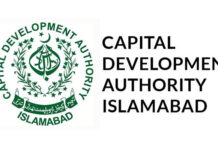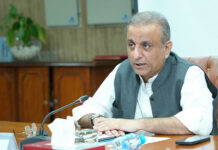
KARACHI: State Bank of Pakistan (SBP) on Friday issued an updated Foreign Exchange Manual for the benefit of stakeholders including authorized dealers (banks), exporters, importers, travel agents and carriers.
This revised manual will enable the stakeholders to comply with the existing rules and regulations governing foreign exchange business more effectively. It has also been placed at the State Bank’s website for reference, said an SBP statement.
SBP’s Exchange Policy Department has been issuing updated foreign exchange manual from time to time. Last such version of the Manual was issued in May 2017.
Since the issuance of the updated foreign exchange manual in 2017, several changes/amendments to the foreign exchange regulations have been made.
The central bank last month introduced identification requirements for all foreign currency buy and sell transactions equivalent to $500 or above on currency exchange companies and directed them to retain the copies of identification documents to comply with anti-money laundering rules.
These revisions come in the wake of a critical meeting of the Financial Action Task Force (FATF) set to take place next week in which it would review and decide if Pakistan has introduced enough measures to curb terror financing and anti-money laundering.
These measures were introduced to curb anti-money laundering and terrorism financing ahead of the FATF plenary meeting which is due next week.
On Friday, the caretaker finance minister Dr Shamshad Akhtar chaired a meeting on matters related to FATF meetings.
Finance Minister in her opening remarks expressed Pakistan’s strong resolve to keep up efforts on the counter financing of terrorism.
She said that the Finance Ministry has improved institutional mechanisms for handling AML/CFT issues.
She added that the coordination between central bank, banking institutions and law enforcement agencies (LEAs) have also been strengthened to curb money laundering and terror financing.
She invited participants to share their views and suggestions to further strengthen measures and put in place a strong implementation mechanism in this regard.






















